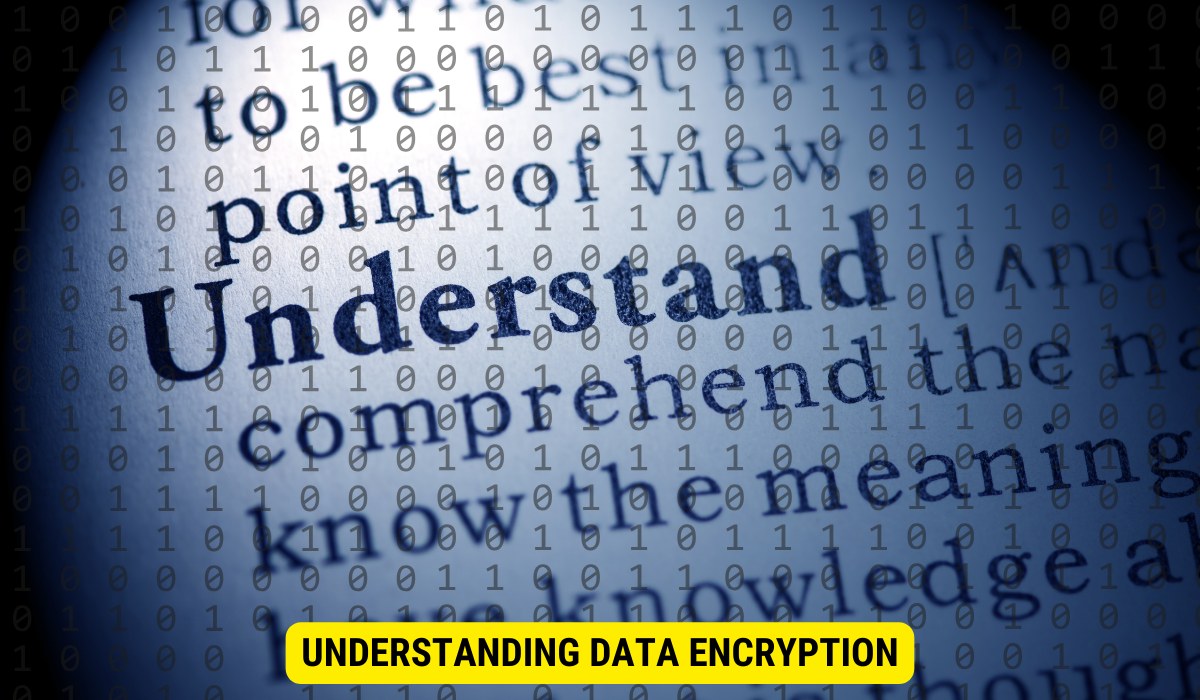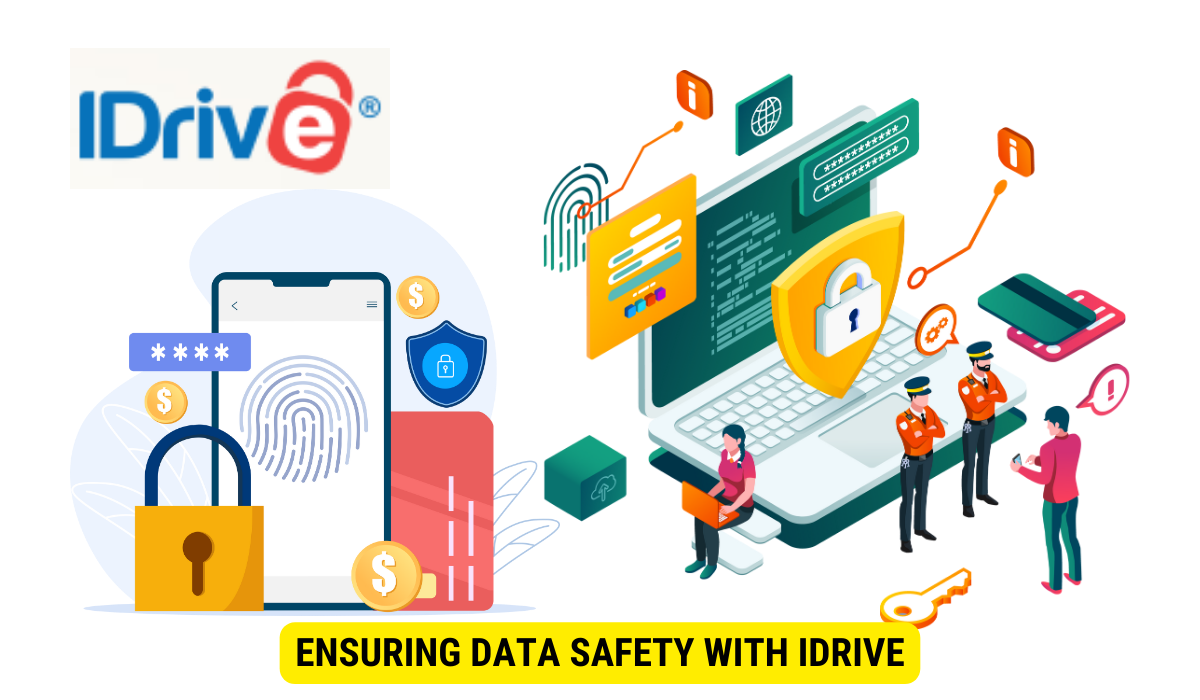IDrive encrypts data on the user’s device before sending it to the cloud, ensuring that it is protected from unauthorized access throughout the entire backup and storage process.
Data security is a paramount concern for individuals and businesses in today’s digital age. Storing sensitive information in the cloud can offer many benefits, but it also raises important questions about how that data is protected. One popular cloud storage solution, IDrive, has garnered attention for its robust encryption practices. I will explore whether IDrive encrypts data before sending it to the cloud and its implications for users.
Understanding Data Encryption

Data encryption is the process of encoding information to make it unreadable to unauthorized parties. It delivers an extra layer of security for sensitive data, ensuring that it cannot be understood or used maliciously, even if it is intercepted. Encryption algorithms use mathematical functions to scramble the data, and only authorized users with the correct encryption key can decipher it.
What is Data Encryption?
Data encryption involves converting plain text data into ciphertext using an encryption algorithm. The resulting ciphertext can only be decrypted back into plain text using the corresponding decryption key. This process is essential for protecting data from unauthorized access and ensuring its confidentiality.
When data is encrypted, it undergoes a complex transformation that alters its original form. This transformation is achieved through the use of encryption algorithms, which are designed to manipulate the data in a way that is mathematically difficult to reverse. Applying these algorithms transforms the data into an unreadable format, making it virtually impossible for unauthorized individuals to understand it.
A frequently employed encryption technique is the Advanced Encryption Standard (AES). AES functions as a symmetric encryption method, implying that a singular key is utilized for both encrypting and decrypting. It works with data segments, often 128 bits, and performs mathematical functions on these segments to yield the coded result. AES’s resilience is evident from its capability to resist attacks that attempt all potential keys until the accurate one emerges.
Importance of Data Encryption in Cloud Storage

Cloud storage services offer convenience, accessibility, and scalability. However, the cloud also presents security risks, as data is transmitted and stored across multiple servers. Encrypting data before sending it to the cloud adds a layer of protection, safeguarding it from unauthorized access, data breaches, and potential cyber threats.
When data is stored in the cloud, it is often distributed across various servers and data centers. This distribution allows for redundancy and ensures that data remains accessible even if one server fails. However, it also means that data is more vulnerable to unauthorized access. Without proper Encryption, anyone with access to the cloud infrastructure could potentially intercept and read the data.
Companies can lessen the chance of unwarranted access by encoding data prior to cloud storage. Encoding guarantees that if intruders penetrate the cloud system, they encounter only coded data lacking the relevant key, significantly diminishing the potential for critical details to be compromised.
Furthermore, data encryption also helps organizations comply with various data protection rules. Several industries, such as healthcare and finance, have strict requirements for protecting sensitive customer information. Encrypting data in transit and at rest in the cloud helps organizations meet these compliance standards and avoid potential legal and financial consequences.
It is important to note that while data encryption provides high security, it is not a foolproof solution. The strength of encryption algorithms can be compromised over time as computing power increases. Therefore, it is crucial for organizations to regularly update their encryption methods and algorithms to stay ahead of potential threats.
The IDrive Encryption Process
IDrive takes data security seriously and provides robust encryption measures to protect user data. Let’s explore how IDrive handles data encryption and the protocols it employs to ensure data safety.
When it comes to data security, IDrive leaves no stone unturned. The company understands the importance of safeguarding user data and has implemented a comprehensive encryption process to ensure maximum protection.
One of the key aspects of IDrive’s encryption process is its client-side encryption approach. This means that data is encrypted on the operator’s device before it is transmitted to the cloud. By encrypting the data locally, IDrive ensures that the encrypted data remains protected even if there is a security breach on their servers.
But what encryption protocols does IDrive use to secure user data? The answer lies in the powerful AES-256 encryption algorithm. AES-256, which stands for Advanced Encryption Standard with a 256-bit key, is widely recognized as one of today’s most secure encryption algorithms.
With AES-256, IDrive ensures that user data is encrypted and decrypted using a symmetric key. This means that the same key is used for Encryption and decryption, providing high security for sensitive information. The strength of AES-256 lies in its key length, which makes it virtually impossible for unauthorized individuals to decipher the encrypted data.
But IDrive doesn’t stop there. In addition to AES-256, the company employs other encryption protocols to enhance data security further. These protocols work in tandem with AES-256 to create multiple layers of protection, making it even more challenging for potential attackers to compromise user data.
Implementing robust encryption measures and protocols, IDrive ensures that operator data remains confidential and secure throughout the backup and storage process. Whether it’s personal documents, photos, or sensitive business information, IDrive’s encryption process provides peace of mind for users, knowing that their data is in safe hands.
How IDrive Handles Data Encryption
IDrive implements a client-side encryption approach, which means that data is encrypted on the operator’s device before it is transmitted to the cloud. This means the encrypted data remains protected even if there is a security breach on IDrive’s servers.
When a user initiates a backup or sync process with IDrive, the data is first encrypted using industry-leading encryption algorithms. This encryption process occurs on the user’s device, ensuring the data remains secure during transmission.
Once the data is encrypted and transmitted to IDrive’s cloud servers for storage, this transmission process is done securely, utilizing encrypted channels to prevent unauthorized access or interception.
The encrypted data is stored in a highly secure environment upon reaching IDrive’s servers. IDrive’s servers are equipped with state-of-the-art security measures, including firewalls, intrusion detection systems, and regular security audits, to ensure the safety of operator data.
When a user needs to access their data, the decryption occurs on their device. The encrypted data is downloaded from the cloud and decrypted using the same symmetric key used for Encryption. This confirms that only the authorized user can access and view the decrypted data.
By handling data encryption on the client side, IDrive puts the power in the hands of the user, allowing them to have full control over their data’s security. This approach delivers an extra layer of protection and gives users the peace of mind that their data is safe even in the event of a security breach.
IDrive’s Encryption Protocols
IDrive incorporates robust encryption methods, such as AES-256, to protect users’ information. AES-256 is globally acknowledged as among the top-tier encryption techniques. This method employs a consistent key for both encoding and decoding, ensuring the safety of critical data.
Besides AES-256, IDrive integrates additional encryption standards to amplify data protection. These standards synergize to form a comprehensive encryption system that safeguards user data’s privacy and authenticity.
Another encryption method that IDrive embraces is the RSA technique. RSA, an acronym for Rivest-Shamir-Adleman, is an encryption standard that utilizes two public and private keys. The public key is designated for encoding, whereas the private one handles decoding.
By combining AES-256 and RSA Encryption, IDrive ensures that user data is protected during transmission and storage. This multi-layered approach to Encryption adds an extra level of security, making it extremely difficult for unauthorized individuals to access the encrypted data.
Furthermore, IDrive regularly updates its encryption protocols to stay ahead of emerging threats and vulnerabilities. The company closely monitors the latest developments in encryption technology and implements any necessary updates to ensure user data remains secure.
With IDrive’s encryption protocols in place, users can rest assured that the highest security standards protect their data. Whether personal files, sensitive business documents, or confidential client information, IDrive’s encryption process ensures that user data remains safe and secure.
Comparing IDrive’s Encryption to Other Cloud Services
While IDrive’s encryption methods inspire confidence, it’s essential to understand how they compare to other cloud storage providers. Let’s explore the unique features of IDrive’s Encryption and its advantages over other services in the market.
IDrive vs. Other Cloud Storage Providers
Unlike many cloud storage providers, IDrive stands out with its client-side Encryption. This means users have exclusive control over the encryption process, enhancing data security. In contrast, some providers use server-side Encryption, where the Encryption and decryption occur on their servers.
Unique Features of IDrive’s Encryption
Besides its client-side Encryption, IDrive offers additional security features, such as the option to create a private encryption key. This feature allows users to set a unique encryption key not stored on IDrive’s servers, giving them complete control and peace of mind over sensitive data.
Ensuring Data Safety with IDrive

IDrive goes beyond Encryption to ensure the safety of user data. Let’s explore some additional security measures implemented by IDrive, and the role users play in protecting their data.
Additional Security Measures by IDrive
Alongside Encryption, IDrive implements advanced security measures such as SSL/TLS encryption for data transmission and secure servers protected by firewalls. These measures ensure that data remains encrypted and safe throughout its journey to the cloud storage servers.
The Role of Users in Data Protection
While IDrive provides robust Encryption and security measures, users also play an essential role in protecting their data. Strong passwords, enabling two-factor authentication, and regularly updating software and devices are crucial to prevent potential vulnerabilities.
Key Takeaways
- Client-side Encryption: IDrive stands out by encrypting data on the user’s device before sending it to the cloud, providing additional protection against unauthorized access.
- Robust Encryption Protocols: IDrive uses the AES-256 encryption algorithm and RSA encryption, ensuring user data is encrypted securely.
- Comparison with Competitors: Unlike many cloud storage providers that use server-side Encryption, IDrive’s client-side Encryption gives users more control over their data’s security.
- Additional Security Features: Beyond Encryption, IDrive offers security features like SSL/TLS encryption for data transmission and servers fortified by firewalls.
- User’s Role in Security: While IDrive provides powerful encryption tools, users play a vital role in data protection by practicing good security habits.
FAQs
How does IDrive handle data encryption?
IDrive implements client-side Encryption, meaning the data is encrypted on the user’s device before being sent to the cloud. This ensures that the encrypted data remains safe even if there is a breach on IDrive’s servers.
What encryption algorithms does IDrive use for data security?
IDrive uses the AES-256 encryption algorithm, recognized as one of the most secure. It also employs other protocols like RSA encryption for added security.
How does IDrive’s Encryption compare to other cloud services?
IDrive is distinct in its use of client-side Encryption, giving users exclusive control over the encryption process. Some other providers use server-side Encryption.
Does IDrive offer any additional security measures beyond Encryption?
Yes, alongside Encryption, IDrive uses SSL/TLS encryption for data transmission and protects its servers with advanced firewalls.
What role do users play in data protection with IDrive?
Users are crucial in data protection by using strong passwords, enabling two-factor authentication, and updating their software and devices.
Conclusion
In conclusion, IDrive utilizes robust encryption measures to protect user data before sending it to the cloud. Implementing client-side encryption, strong encryption protocols, and additional security features sets IDrive apart from other cloud storage providers. While IDrive takes data security seriously, users should proactively protect their data by following best practices. By combining Encryption and user vigilance, IDrive aims to provide a secure and reliable cloud storage solution.
